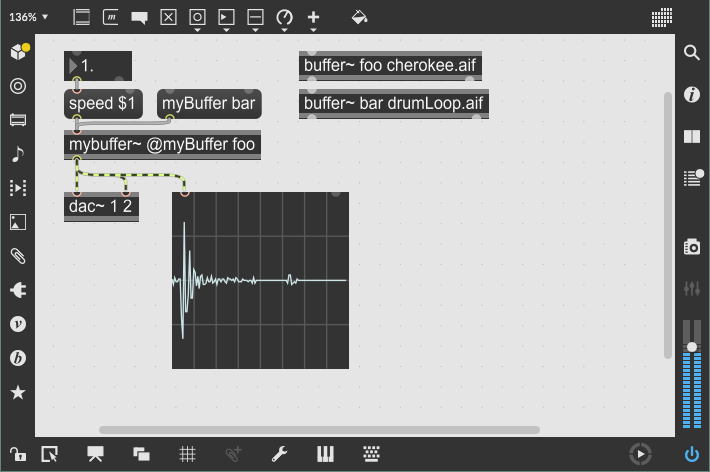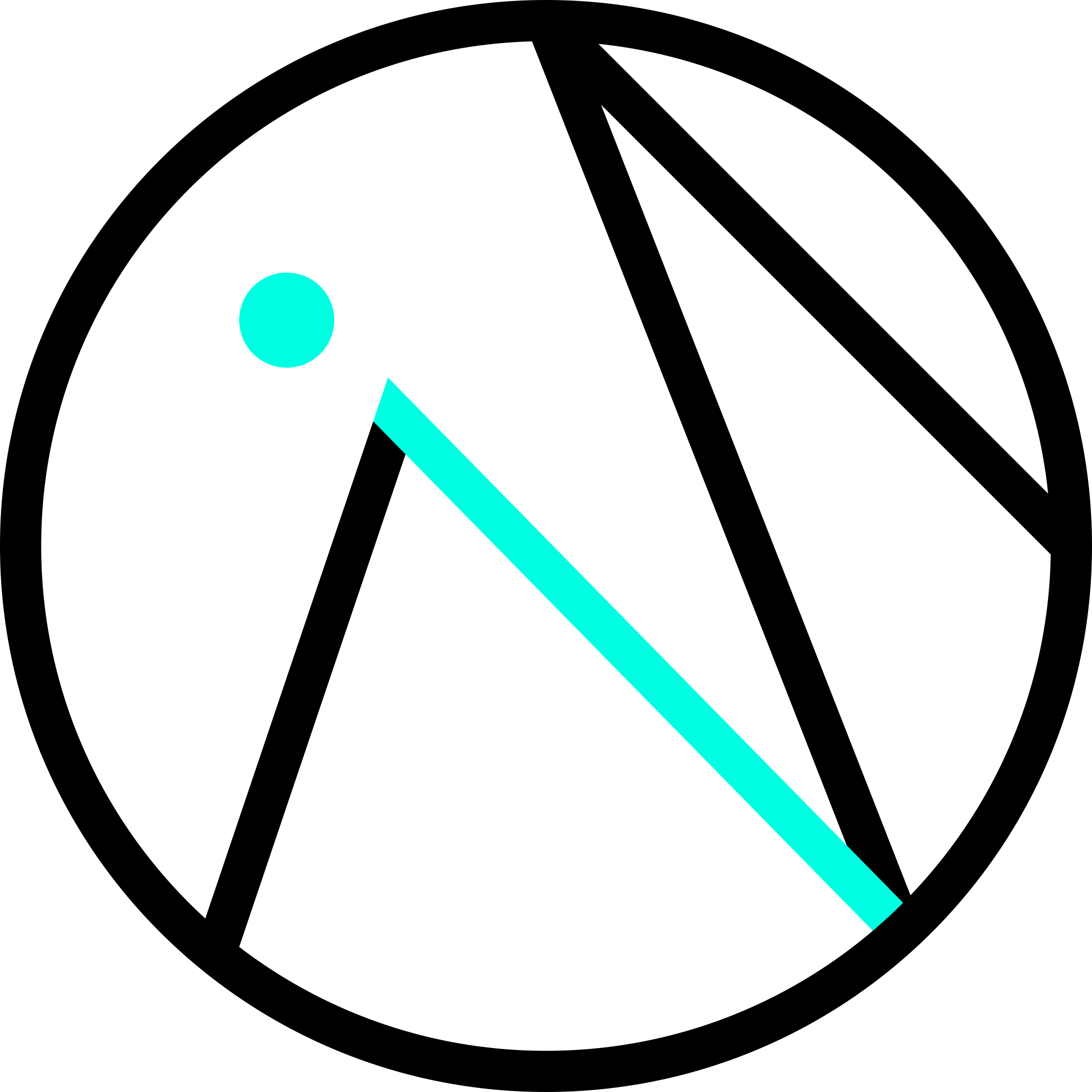A Buffer is a special construct that is implemented on a per-wrapper basis. While it doesn’t exist as a standalone omni struct, the omni parser knows about its existence. However, the code will only compile if the wrapper around omni (like omnicollider and omnimax) implements it. Its purpose is to deal with memory allocated from outside of Omni, as it’s the case with SuperCollider’s or Max’s own buffers. Check here for a description on how to write an Omni wrapper (including the Buffer interface).
To declare Buffers, the buffers block must be used:
buffers:
myBuffer
sample:
out1 = myBuffer[0]
Buffer methods
Buffers can only be accessed in the perform / sample blocks.
These methods are provided:
len/length: returns the length of theBuffer.size: returns the total size of theBuffer(length * channels).chans/channels: returns the number of channels of theBuffer.samplerate: returns the samplerate of theBuffer.read: read at index with linear interpolation[]/[]=: read / write at index
Example
MyBuffer.omni:
buffers:
myBuffer
params:
speed {1, 0.1, 10}
init:
phase = 0.0
perform:
scaled_rate = myBuffer.samplerate / samplerate
sample:
out1 = myBuffer[phase]
phase = (phase + (speed * scaled_rate)) % myBuffer.len
SuperCollider
After compiling the omni code with
omnicollider MyBuffer.omni
the Buffer interface will work as a regular SuperCollider Buffer. For example:
s.waitForBoot({
b = Buffer.read(s, Platform.resourceDir +/+ "sounds/a11wlk01.wav");
s.sync;
{MyBuffer.ar(b, 1)}.play
})
Max
Check omnimax’s readme for more information on the calling syntax of Max objects compiled with omni.
After compiling the omni code with
omnimax MyBuffer.omni
the Buffer interface will look like so:

